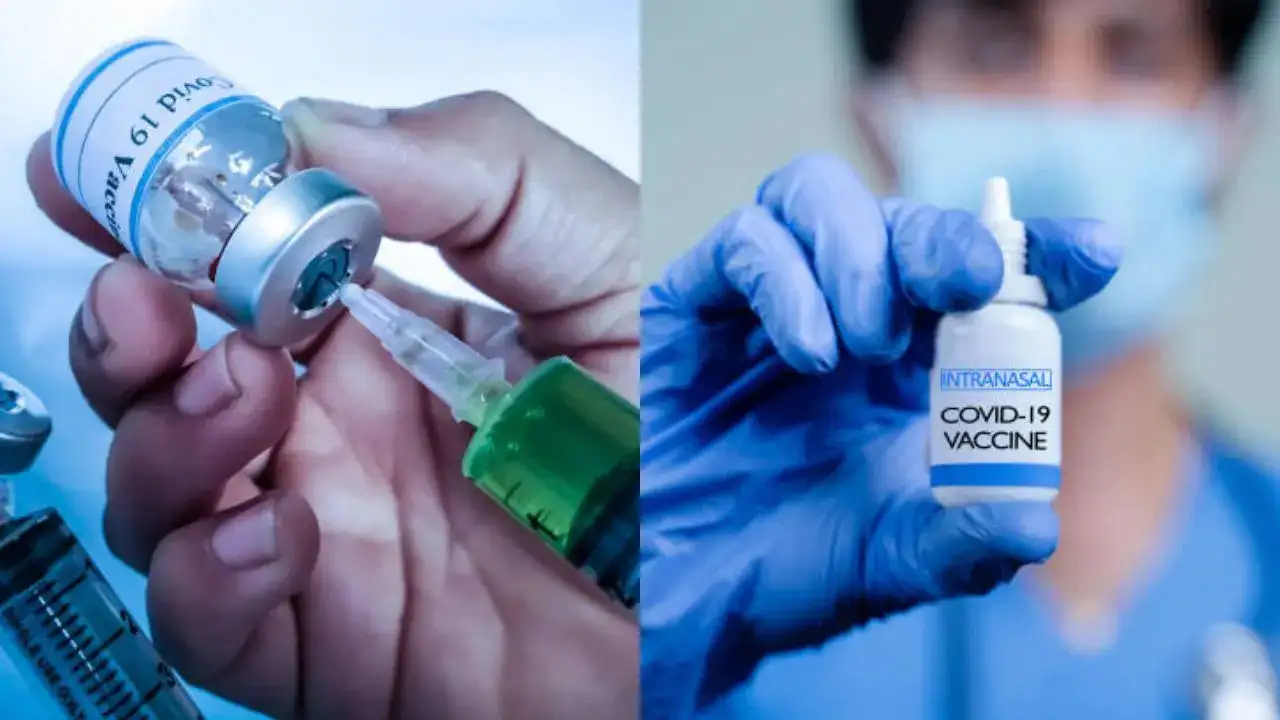
While most vaccines get administered as injections directly into the muscle tissue, protection from COVID-19 could be crucial through nasal shots
COVID-19 is back, and how. Even as cases of COVID-19 have surged in many Asian cities—especially Hong Kong, Singapore, and Thailand—there are also big numbers recorded in India. According to experts, vaccines have played a major role in preventing coronavirus during the pandemic, which began in December 2019. However, now the researchers have discovered a promising alternative to the traditional jabs, which they say may be safer, more effective, and better at stopping the virus.
Researchers from Yale University have found that nasal vaccine boosters may be safer to use and help target better protection against respiratory diseases like COVID-19 without needing traditional immune-boosting additives.
Findings of the study, published in the journal Nature Immunology, say that while most vaccines and boosters get administered as injections directly into the muscle tissue, usually in the upper arm, protection from respiratory diseases like COVID-19 could be crucial through nasal shots.
According to scientists, nasal vaccine boosters trigger strong immune defences in the respiratory tract, even without the help of immune-boosting ingredients known as adjuvants. “Our study shows how a simple viral protein antigen can boost respiratory tract immune responses against viruses,” said Dr. Akiko Iwasaki, Sterling Professor of Immunobiology at Yale School of Medicine and senior author of the study. “These data imply that viral proteins in nasal spray may be used as a safe way to promote antiviral immunity at the site of viral entry,” he added.
How was the study conducted?
Scientists said they first injected mice with a traditional mRNA COVID-19 shot directly into the muscle and later also administered the mice a booster vaccine through the nose. The researchers wanted to see the effects of vaccine boosters—known as adjuvants - used in some vaccines that help stimulate a stronger, longer-lasting immune response. However, they can cause adverse effects like inflammation and swelling of facial nerves.
“We call this vaccine strategy ‘prime and spike’, which is where the mice were intramuscularly primed with mRNA vaccines followed by a nasal boosting with unadjuvanted spike protein,” Dong-il Kwon, a postdoctoral fellow in Yale’s Department of Immunobiology, said in a statement.
According to experts, only the nasal booster triggered a strong local immune response, while others, including intramuscular injection, did not produce much IgA or activate immune cells in the lungs of the mice. When the researchers gave the mice a second nasal booster, their IgA levels increased even more in both the lungs and nasal passages.
“These findings help explain why nasal boosters do not require adjuvants to induce robust mucosal immunity at the respiratory mucosa and can be used to design safe and effective vaccines against respiratory virus pathogens,” Kwon added.
Regular COVID-19 shots do not create much IgA in the nose and lungs, which is why people get infected and spread the virus even when they get vaccinated. The study then found that nasal boosters trigger strong and long-lasting immune protection where respiratory viruses like coronavirus first attack.
